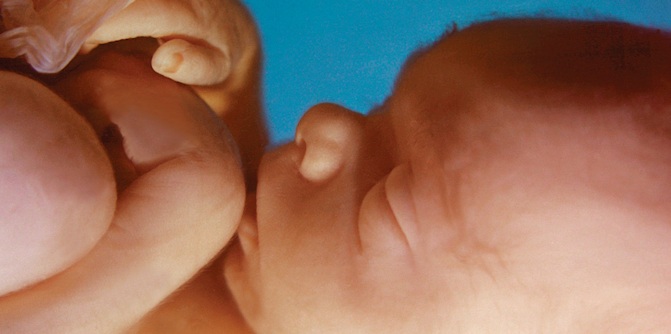Congressional Republicans are pushing back against claims that aborted babies’ body parts are essential to scientific and medical advancements and presenting evidence to the contrary.
In a report released last week, the Congressional Select Panel on Infant Lives said its research has not found any medical cures directly linked to fetal tissue research in the past 90 years, CNS News reports.
“In short, human fetal tissue is outdated technology that is not necessary for modern vaccine research,” the report stated. “For example, current vaccine research for HIV/AIDS, Cancer, Malaria and Ebola does not rely on fetal tissue.”
The Select Panel on Infant Lives began investigating the use of aborted babies’ body parts last year after a series of undercover videos by the Center for Medical Progress showed top Planned Parenthood officials discussing the sale of aborted babies’ body parts.
Pro-abortion Democrats and abortion activists repeatedly have tried to shut down the panel, arguing, in part, that the investigation is getting in the way of important medical research using fetal tissue from aborted babies.
However, the panel’s new report includes a detailed explanation of why aborted babies’ body parts are not nearly as essential to medical research as abortion activists claim.
Click here to sign up for pro-life news alerts from LifeNews.com
“Fetal tissue has been used in biomedical research for over 90 years. In this time, not a single medical cure has resulted from this research,” reported U.S. Rep. Marsha Blackburn, R-Tennessee, who chairs the panel.
The panel report pointed to current research on the Zika virus as evidence. According to the report, none of the successful research so far has used human fetal tissue.
As further evidence, the panel report cited research from the past 100 years, none of which showed a direct link between fetal tissue and medical cures.
“While it is commonly claimed that fetal tissue was used to produce the polio vaccine, this is largely false,” according to the report. “The polio vaccine was developed by Jonas Salk in 1955 using a monkey cell line, and is still produced using monkey cells.”
The panel report continues:
Some might object that while fetal tissue research has not directly resulted in medical cures, it has helped advance the overall body of scientific knowledge and thereby assisted in producing cures. It is impossible to determine whether this claim is true, and if so to what extent. Yet the fact is that no one can point to a single medical advancement that critically depended on the use of fetal tissue.
In fact, vaccines against eight diseases (Rabies, Diphtheria, Typhoid, Cholera, Plague, Tetanus, Pertussis and Bacille-Calmette-Guerin disease) were all developed in the 1800s and early 1900s, well before the first use of fetal tissue in research.
Some vaccines in current use were developed using fetal tissue from aborted babies; however, the panel report said the fetal tissue was used for “economic, not scientific reasons.”
“Almost 75 specific vaccine formulations have been approved by the FDA for use in the United States and not a single one has been produced using freshly isolated human fetal tissue. Eleven of these vaccines rely on fetal cell lines for historic reasons, yet all of them could be produced using animal cells,” according to the report.
“Obtaining FDA approval for a new vaccine is very labor intensive and costly,” it continued. “Consequently, once FDA approval has been secured for a particular method of producing a vaccine, pharmaceutical companies tend to use that method in order to avoid incurring new costs associated with ‘validating’ the safety and efficacy of new procedures.”
The panel’s findings back up statements by a number of scientific researchers who also have stated that aborted babies’ body parts are not essential to medical advancements.
In an op-ed in the Milwaukee Wisconsin Journal Sentinel last September, six doctors explained why using fetal tissue for research is unethical and unnecessary.
“The argument that fetal-derived tissues must be used in research to develop medical treatments is false,” they wrote. “Many therapies have been developed using cell lines not of fetal origin, including insulin for diabetes (produced in bacteria), Herceptin for breast cancer and tissue plasminogen activator for heart attack, stroke and pulmonary embolism (both developed in Chinese hamster ovary cells).”
The evidence that abortion groups may be illegally profiting off the sale of aborted babies’ body parts has prompted a number of states to introduce legislation to ban the sale and/or donation of aborted babies’ body parts to research. However, abortion activists have been attacking these bills as “anti-science.”








